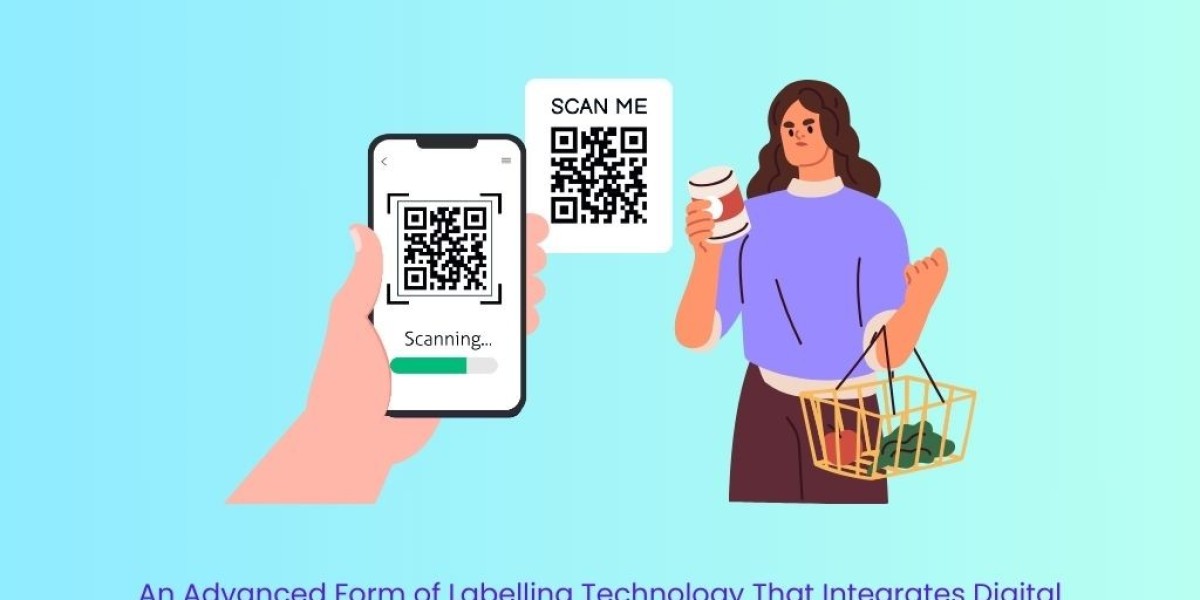The report "Smart Labels Market by Technology (RFID labels, EAS labels, NFC labels, sensing labels, others), Application (Retail & inventory tracking, pallet tracking), End-Use (FMCG, logistics, retail, healthcare), Component - Global Forecast to 2029", size is projected to grow from USD 11.43 billion in 2024 and is projected to reach USD 17.33 billion by 2029, at a CAGR of 8.7%. This report provides a comprehensive analysis of industry, including market size, share, smart labels market trends, drivers and constraints, competitive aspects, and prospects for future growth. The demand for smart labels is expected to increase, as it is fast revolutionizing the benefits of traditional labels. These smart labels serve the simple recognition function not just as product identification but also as real-time data tracking, providing security, and allowing interactive consumer engagement. All these make smart labels a common solution for businesses that strive for increased operational efficiencies, verification of authenticity of products at the customer level, and deeper interactions with clients. The population and increasing income earnings will drive the demand in emerging markets to have better solutions for tracking products in real-time, along with inventory management.
Browse in-depth TOC on "Smart Labels Market".
254 – Tables
54 – Figures
272 – Pages
Download PDF Brochure: https://www.marketsandmarkets.com/pdfdownloadNew.asp?id=192651809
EAS labels accounted for the third largest share in the global smart labels market
EAS labels are used most commonly at retail stores in monitoring the goods and securing them, offering retailers a convenient means through which products can be secured without compromising customer shopping experiences. For instance, Walmart and Target place EAS labels on specified products, usually electronics, and apparel, to inform store employees in case a product is stolen or exits from the store without a proper checkout process. EAS labels work through the triggering of alarms each time the object passes detection gates during exits from stores, preventing shrinkage and loss. Thus, EAS labels are becoming more prominent and one of the fastest-growing sectors in the smart label market.
By application, pallet tracking accounts for the second largest share of the smart labels market
Pallet tracking helps in improving visibility and efficiency while conducting business through the supply chain. Tracking all pallets through the supply chain from warehousing to transportation is made possible for businesses that integrate smart labels in their supply chain using RFID tags. Tags provide real-time visibility, thus reducing the possibility of any errors or theft. Coca-Cola and Amazon have used RFID-based smart labels on their pallets to control inventory and improve warehouse operations and timely deliveries. With these smart labels attached to pallets, automated tracking occurs, which accelerates the load and discharge processes, minimizes human error, and generates data for potential improvements. The high demand for this application will keep increasing in the coming years.
Request Sample Pages: https://www.marketsandmarkets.com/requestsampleNew.asp?id=192651809
Retail accounts for the second-largest share of the smart labels market by end-use industry
Retailers are using smart labels like RFIDS & ESL to enable efficient inventory to handling & minimize manual inaccuracies. The real-time data to be collected can help in the proper stocking of products, proper space management, as well as strengthening the retailer chains. For instance, Walmart and Macy's have already adopted RFID-based smart labels in their operations to improve inventory management and reduce expenses. Smart labels make it easier for the retail sector to monitor its products' flow within the warehouses and from the distribution centers to the store shelves for customer fulfillment. Smart labels help in providing custom information relevant to customers by connecting with mobile apps or store kiosks. It is projected that with e-commerce continually expanding, an increase in the use of smart labels through the physical store and online store will enhance growth.
Europe accounted for the third largest share in the global smart labels market
The European region is regarded as having vast investment opportunities in smart label technology. The adoption at this time is lower in some of the less developed markets, but there is a trend of increasing interest in these regions, where the market is expected to expand in the future. The main area of implementation of smart label technology in European countries includes supply chain applications such as inbound and outbound logistics, assets, and traceability.Besides the supply chain, other industries such as manufacturing and distribution, retail and healthcare, and pharmaceuticals, chemicals, and automobiles are becoming significant smart label applications. Due to these various uses and growing demand across various sectors, the long-term potential of Europe is set to become the third-largest smart labels market.
A few of the major players are Avery Dennison Corporation (US), CCL Industries, Inc. (Canada), Zebra Technologies Corporation (US), and SATO Holdings Corporation (Japan). These players have implemented various growth strategies, such as product launches, collaborations, partnerships, acquisitions, and expansions to enhance their market shares and boost their product portfolios.
Request Customization: https://www.marketsandmarkets.com/requestCustomizationNew.asp?id=192651809
Avery Dennison Corporation, a global leader in labeling and packaging materials, offers a comprehensive range of innovative solutions to meet the diverse needs of its customers worldwide. The company offers a wide range of products and solutions, including labels, functional materials, RFID inlays and tags, and software that connects the physical and digital. They also provide products that enhance branded packaging and display information to improve customer experiences. Their solutions cater to various industries globally, such as home and personal care, apparel, retail, e-commerce, logistics, food, pharmaceuticals, and automotive. The company’s two reporting segments include Materials and Solutions. The Solutions Group offers branding solutions such as decorative brand elements, graphic tickets, tags, labels, and eco-friendly packaging. Its information solutions include item-level RFID solutions, price ticketing & marking systems, brand protection and security services, and others. The company has a global presence in more than 50 countries, with operations spanning North America, South America, Europe, and the Asia Pacific.
Zebra Technologies Corporation is a prominent player in the automatic identification and data capture (“AIDC”) industry. The company operates in the market via two business segments: Asset Intelligence & Tracking (AIT), which comprises barcode and card printing, supplies, services, location solutions, and retail solutions, and Enterprise Visibility & Mobility (EVM), which deals in mobile computing, data capture, RFID, and services. The company designs, manufactures, and sells a broad range of AIDC products, including mobile computers, barcode scanners, and imagers, RFID readers, specialty printers for barcode labeling and personal identification, real-time location systems (“RTLS”), related accessories and supplies, such as labels and other consumables. The company operates in 122 facilities with around 9,750 employees globally. They offer products, solutions, and services through a direct sales team and a network of over 10,000 channel partners in approximately 185 countries.
SATO Holdings Corporation is a leading provider of automatic identification and data collection solutions headquartered in Japan. Founded in 1951, the company is recognized for its design, development, and production of a wide range of label solutions. SATO offers a comprehensive portfolio of plain and full-color label types to meet various business needs. The company provides labels with bespoke sizes, adhesives, and substrates to accommodate diverse print requirements. SATO's offerings cover various applications, including price tags, expiry labels, and RFID-enabled tracking solutions. The company serves a diverse customer base across industries such as food, healthcare, manufacturing, retail, transportation, and logistics. With a global presence that spans the Americas, Europe, Asia, and Oceania, SATO delivers tailored solutions to meet the unique needs of each market.
Speak to Expert: https://www.marketsandmarkets.com/speaktoanalystNew.asp?id=192651809
CCL Industries, Inc. is a prominent global producer and supplier of specialized packaging and operates through the following segments: CCL, Avery, Checkpoint, and Innovia. CCL Industries processes pressure-sensitive and extruded film materials for decorative, informative, security, and practical purposes. The CCL segment delivers cutting-edge labeling, security, and packaging solutions across various sectors, including healthcare, food and beverage, automotive, and technology. It offers pressure-sensitive labels, flexible pouches, pharmaceutical labels, RFID solutions, and secure packaging for clinical trials and government security applications. The Avery division produces consumer goods such as labels, binders, dividers, sheet protectors, and writing devices. The Checkpoint section offers technology-based solutions for minimizing losses, inventory management, and labeling. The Innovia division provides specialized, high-performance, multilayer, surface-engineered films for labeling, packaging, and security purposes. The firm has 213 manufacturing facilities in 43 countries and 6 continents, providing worldwide packaging solutions.








